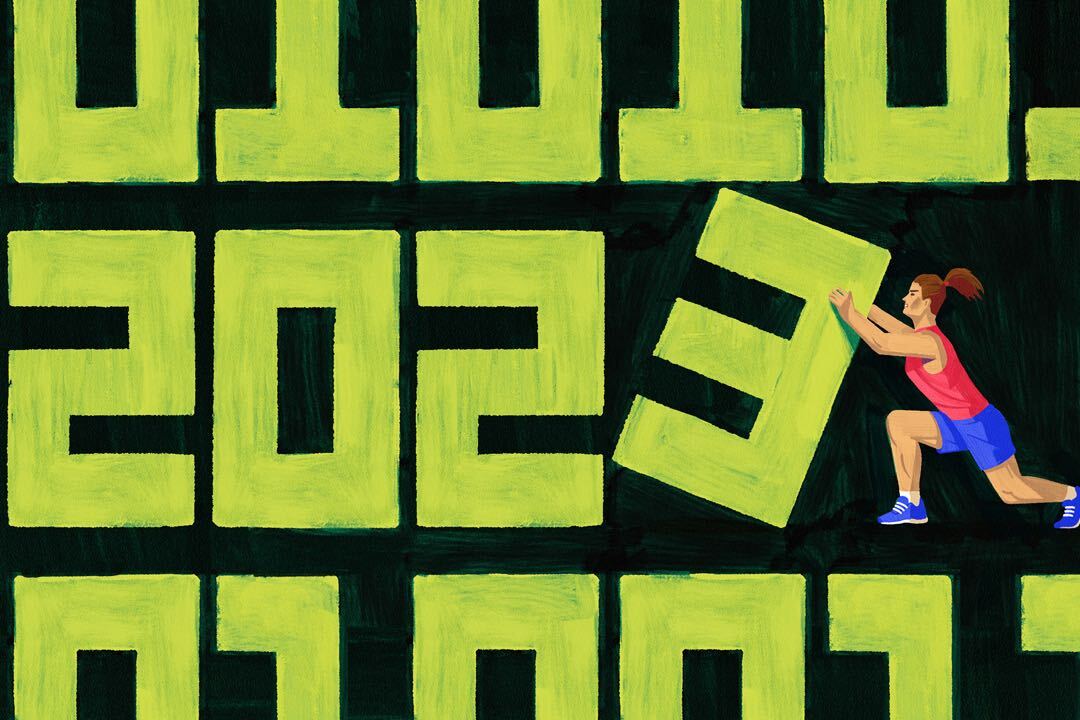
This is the first installment of Fantastic Suit, a column about exercise.
A ton of what we’ve been taught about health is truly eating plan lifestyle wrapped in spandex. Treadmills and ellipticals aspect calorie counts as prominently as they do length “traveled.” At barre, sculpt society “strengthen lengthen tone” classes, the slimness and litheness of your system is on show, judgeable, as you do little movements that won’t depart you all that significantly stronger. Exercise routine streaks can conclusion up as a route to injuries. Scientists have known for decades that doing the job out is not a excellent way to shed excess weight, and nonetheless, the very same desire comes just about every January: time to make a approach for diet and work out, to lose body weight.
Even when you set aside the pounds matter, as ever more many of us are hoping to do, a bizarre emphasis remains at the heart of how we are likely to dissect physical exercise, particularly in the media: There is this concept that you can manage your overall body by exercise—make it function much better, make it very last extended. You can start out “bouncing your way to far better wellbeing” by taking part in a trampoline class. You should to get lessons from astronaut’s exercise session routines for the reason that, scientists clarify, “long hrs of sitting are not dissimilar, physiologically, to floating in area.” A person recent paper indicates a connection amongst training depth and memory yet another between performing out and immunity one more induced countrywide media to dilemma regardless of whether we’re all truly pickle-balling tough enough for it to “count” as a exercise.
We have to boost them through self care, fruits and vegetables, natural vitamins, and physical exercise.
This perspective of exercise may possibly be ideal comprehended as “healthism,” a term coined a long time in the past by sociologist Robert Crawford. “The past handful of years have witnessed an training and operating explosion,” Crawford wrote in a 1980 paper titled “Healthism and the Medicalization of Daily Life,” pointing to the proliferation of wellbeing publications, and “health themes” in newspapers. The notion is that we as individuals are held responsible for the overall health of our bodies, fairly than well being currently being a item of our larger sized environments, or say, the real health-related care we receive. We ought to boost ourselves by means of self care, fruits and greens, natural vitamins, and bodily exercise. Often these things are legitimately helpful but in some cases, properly, they aren’t. They set far too significantly onus on people, they can backfire, and also—the new glut of info and information about what to do and when and for how prolonged are expanding to be genuinely far too significantly for any a person particular person to procedure. And now, we have obtainable to us constant information and facts on the hottest experiments as nicely as customer technology to help us “improve” our bodies. Armed with a fairly economical tracker, the standard jogger can develop into a details scientist of her possess leisure practice … and then is left to interpret the this means (if there is a person?) of so quite a few figures. With arm patches that keep track of contents of our blood, even non-diabetics can track how our insulin stages reply to meals and physical exercise in real time … even though what the optimum fluctuations are for a healthier human being is an open problem. Exercising experts, meanwhile, are working to determine out the great “dose” of movement, as even though motion is just yet another capsule we can and ought to be taking.
The glut of tips and strategies and tricks has intended that there is a full ton of things out there to retain observe of, and almost as significantly to debunk, on a scientific but also cultural amount. If you have listened to Maintenance Period, the preferred podcast by Michael Hobbes and Aubrey Gordon, you’re common with how rotten the guarantee of healthism has often been in truth, it was in Gordon’s new e book debunking myths about fat individuals that I most lately came throughout the term. On their clearly show, Gordon and Hobbes joyfully acquire down everything from the President’s Bodily Fitness check, in which kids are assigned a rating for their effectiveness in a collection of worries that may perhaps or may perhaps not be related to their precise wellbeing, to office wellness applications, which are primarily nothing at all much more than a scheme to cost some men and women a lot more for their wellbeing insurance policies. A lot of of our larger sized conceptions of physical exercise, Hobbes and Gordon make obvious, are far more about hoping to wedge men and women into a narrow and artificial definition of wellbeing. But even if you test to ditch the dated messaging and try out to simply just “follow the science” about motion and well being, it promptly results in being fraught: A examine that arrived out as I was performing on this piece failed to affirm that training in fact has a beneficial influence on memory, inspite of the just one revealed just a number of months ago suggesting that it does.
There is in well being media an ouroboros: the flawed parts of information, the article content debunking the undesirable or dated or limited science. (I have participated in it, a great deal!) Take the idea that we ought to stroll 10,000 actions a day, for example. The concept, in accordance to Harvard Health care University researcher I-Min Lee, originated in 1965 in Japan with a pedometer designed to count—you guessed it—10,000 ways. It is “an straightforward aim to don’t forget,” Lee advised Common Science. But ultimately the amount is just a marketing gimmick. There are dozens if not infinite stories detailing the problems with the 10,000 move rule, some arguing in favor of it, other items describing that, properly, 10,000 methods is not the answer, but—a 2022 JAMA paper suggests!—maybe 7,000 ways is. We have to retain up with the churn of data about how work out has an effect on our bodies, and how we can continue to keep carrying out it improved, the news states. But so lots of of these little ideas and tricks are derived from genuinely worthless or at worst flat out wrong science that we can also in no way cease dutifully swatting absent the bullshit possibly.
It can be simple to overlook the point that we actually have an understanding of the main basic principles of workout pretty very well, in the very same way that we recognize the fundamental principles of good nourishment.
It can be quick to skip the truth that we actually understand the main principles of exercise really well, in the exact way that we realize the basics of great diet. Just as we all know that we are in truth intended to take in veggies, all people is aware of that you must shift.The fascinating section is in the execution: How do we do this, pleasurably and sustainably? What are we seeking to obtain with it? I feel where it gets so difficult is when we try to make training the key to a million other goals—a greater mind, a better system, a smaller sized physique, a system that will stay longer—the record goes on and on. I am intrigued in figuring out how we can make matters simpler for ourselves—and how to use science and technological know-how as applications that actually assistance, relatively than muddle.
The back again and forth between bunking and debunking makes it easy to ignore the best element of exercise, which is that—yes, haha, regretably—it helps make you really feel very good. And probably even far more than that, it can be pleasurable. Even if functioning or body weight lifting or swimming is not usually a full joy in the moment, the web advancement of performing exercises in your existence is not that you turn out to be a unique form, or a effectively-oiled equipment. It must be that you come to feel much better. Not as confirmed by metrics, heart level, your condition, or even your top rated pace, but basically for you.
This calendar year in Slate, we’re heading to attempt to go outside of both the training information cycle and the accompanying choose-downs to converse about health in a distinctive way, a single that techniques back to study and even more the part of motion in our life, not just how it can bolster our health. We’ll consult with scientific tests, look at how company models warp our notion of what we “should’ be carrying out, and extend ourselves, at times really actually. But most of all we’re heading to seek to response the dilemma: which facets of relocating in 2023 make our lives improved? Not thinner, not for a longer time, not even healthier—just superior.






